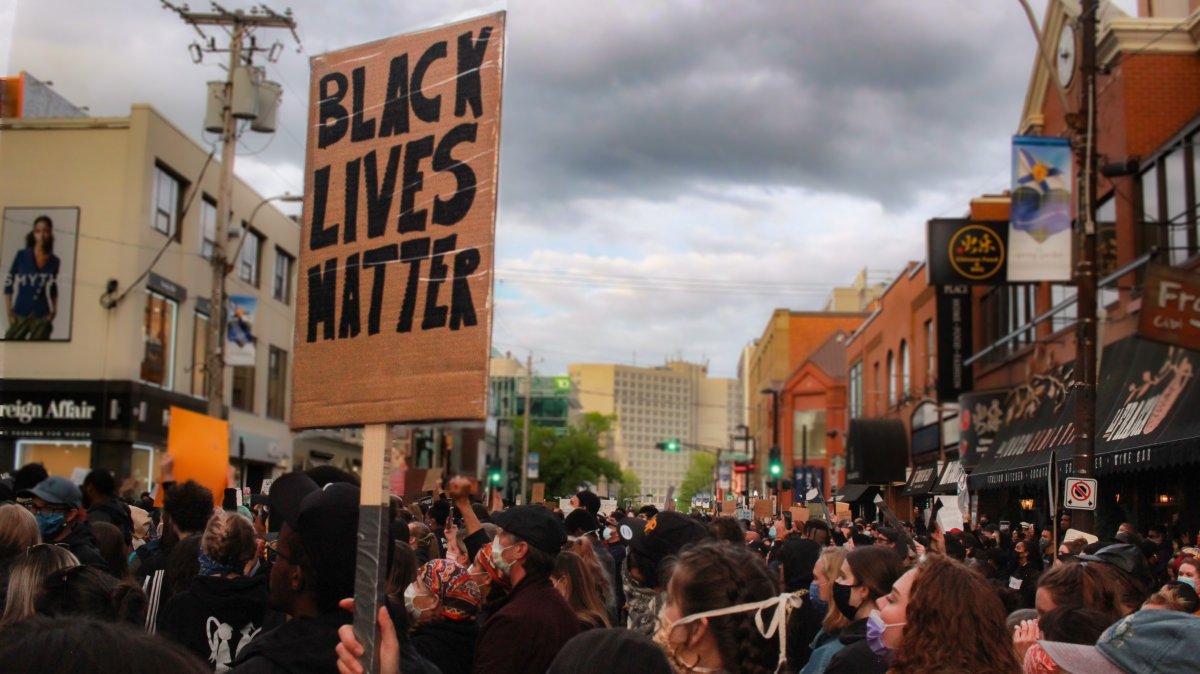Some in Manitoba’s Indigenous community are showing solidarity with the Black Lives Matter movement in the United States, following the death of George Floyd while in the custody of Minneapolis, Minn., police.

Jacqueline Romanow, the chair of Indigenous studies at the University of Winnipeg, says issues of racism resonate with many in the province’s Indigenous community.
Romanow told Global News.
“Every week when you read the news, there’s an Indigenous girl that’s gone missing or has been abused or been murdered, and it’s tragic.”
Romanow says many of her students have experienced racism first-hand.
“The research that I’ve done working with Indigenous students at the university found similar, if not worse, levels of racism against Indigenous people in this province and city,” she said.
“Racism comes out of a certain ignorance. In terms of indigenous culture, I think most Canadians do not have a complete understanding of Indigenous history, Indigenous experience, what it means to be Indigenous in Canada.”

Get daily National news
She also says education can help be part of the solution, but people also need to start speaking out against racism and avoid being complacent.
Former MKO grand chief and Indigenous advocate Sheila North says the experiences aren’t the exact same, but said long-running issues of racism do resonate with the Indigenous community.
“I would never want to take away what’s happened there and minimize it in anyway,” North said of the situation inthe United States.
“But we, as Indigenous people, have faced racism in our own country here for generations, even since 150 years ago.”

North says the time to take action is now.
“While people are suffering and it’s tragic to see people dying and being attacked, we do have an opportunity here to make big, bold changes at government level to reach Indigenous people and reach those people that are the most vulnerable,” North said.
Corey Shefman, an Indigenous rights lawyer, says it shouldn’t mass protests in the United States to get the conversation of racism going in Canada.
“We don’t need to wait for the Americans to be talking about them,” Shefman said.
“We don’t need to wait for these mass protests in the United States to realize and do something about the serious problem we have here in Canada.”








Comments